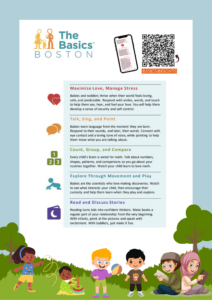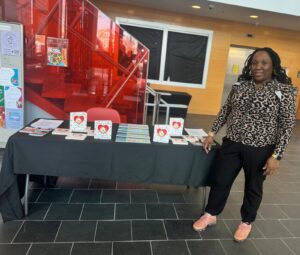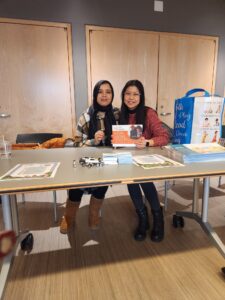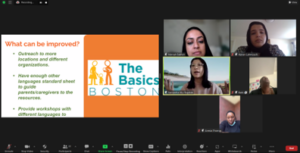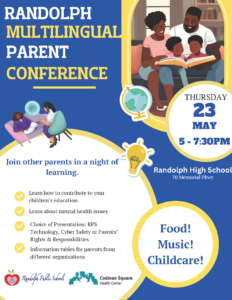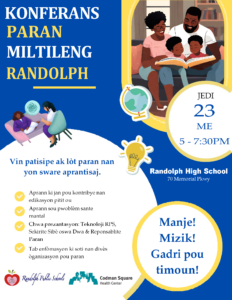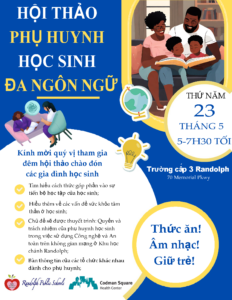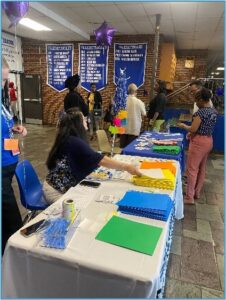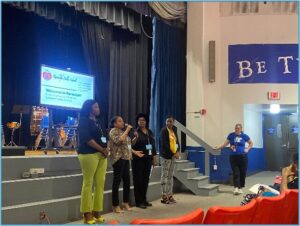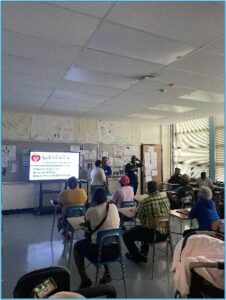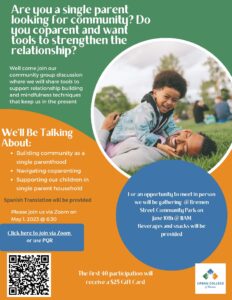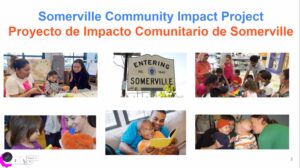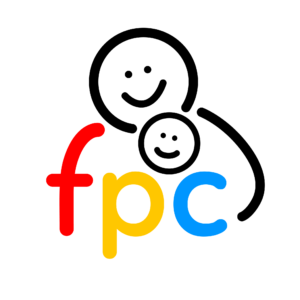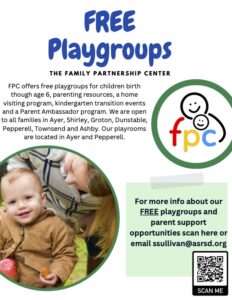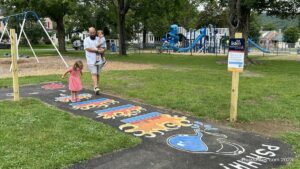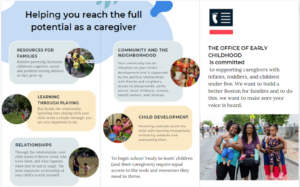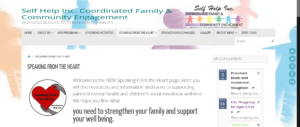In partnership with Suffolk University’s Applied Developmental Psychology program, Families First launched a research study to more deeply assess the Power of Parenting™ program outcomes. This joint study furthers our goal of becoming an evidence-based model.
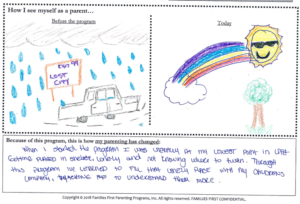 This in-depth analysis focuses on the Identity Maps that parents draw as a reflection activity toward the end of the Power of Parenting program. Parents are encouraged to use creative expression to convey how they see themselves as parents before and after the program. This self-reflection exercise also serves as a qualitative evaluation tool for Families First to assess how participants have changed as a result of the program.
This in-depth analysis focuses on the Identity Maps that parents draw as a reflection activity toward the end of the Power of Parenting program. Parents are encouraged to use creative expression to convey how they see themselves as parents before and after the program. This self-reflection exercise also serves as a qualitative evaluation tool for Families First to assess how participants have changed as a result of the program.
The use of drawings is a unique evaluation tool that offers authentic, unscripted interpretations of changes specifically due to the program—an uncommon approach for program evaluation. Typically, when programs are evaluated, there is a strong focus on quantitative data and numbers. While this approach can reveal a lot of information (and Families First collects plenty of quantitative data), it does not leave much room for individuality or creativity. Another common way to get more in-depth narratives/stories from participants is through interviews and short answers. Although we use this approach as well, not everyone is comfortable with words. The use of drawings gives parents another way of expressing themselves, through their personal stories. The different elements and colors can tell us a lot about their unique stories, especially in terms of emotion.
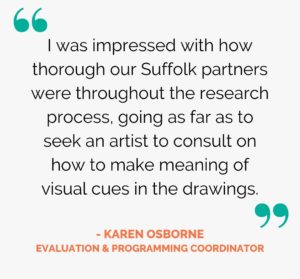 Over the years, we have seen many amazing and descriptive Identity Maps from parents. Anecdotally, we felt they were a powerful tool for parents to express changes in their parenting. To more rigorously examine qualitative themes in the Identity Maps, we partnered with Suffolk University’s research team, composed of faculty advisors Dr. Rosemarie DiBiase and Dr. Amy Marks and graduate intern Samantha Jane Benavidez-Walsh.
Over the years, we have seen many amazing and descriptive Identity Maps from parents. Anecdotally, we felt they were a powerful tool for parents to express changes in their parenting. To more rigorously examine qualitative themes in the Identity Maps, we partnered with Suffolk University’s research team, composed of faculty advisors Dr. Rosemarie DiBiase and Dr. Amy Marks and graduate intern Samantha Jane Benavidez-Walsh.
The study analyzed over a hundred Identity Maps collected over two years in order to identify several broad themes related to changes parents see in their role and their lived experience as a result of the program. Four prominent themes emerged:
KNOWLEDGE LEARNED FROM THE PROGRAM (78%)
- Caregivers expressed that the program has taught them new techniques and ways of relating with their children:
- Improved communication with children
- Stress management techniques
- Positive approaches to disciplining of children
- Examples of specific lessons learned:
- Setting rules on TV time
- Playing more with their children
SHIFT OF EMOTION FROM BEFORE TO TODAY (72%)
- Negative emotions dominated the “before” drawings, whereas depictions of happiness and affection can be found in the “today” drawings
- Use of color and weather to depict emotions
- Mismatched emotions (e.g., one is smiling and the other is frowning) in “before” drawings and more positive, synchronous emotions for all people drawn in “today” drawings
FAMILY CLOSENESS (58%)
- Caregiver and children figures are drawn physically closer together in the “today” picture, compared to “before”
- Indicates spending more quality time together and having a closer relationship
CONNECTEDNESS TO GROUP (10%)
- Getting and giving advice to other caregivers was valuable
- Learned they were not alone in their struggles = increased sense of social support
In April 2021, we were accepted to present our research findings at the Society for Research in Child Development (SRCD)’s international conference. SRCD is a highly respected professional organization in the child development field. Its 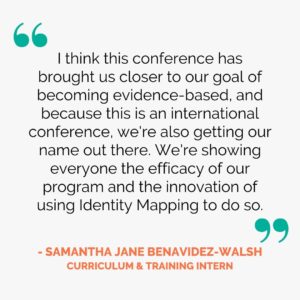 goal is “to promote the understanding of child development through research and dissemination.” Their biennial program attracts thousands of attendees from around the world. Presenting at the conference enabled Families First the opportunity to (1) share the proven positive outcomes from our Power of Parenting program and (2) highlight the utility of the Identity Maps with other interested practitioners and researchers. Ultimately, the conference put our work (both our programming and research) out there for others to see and engage with.
goal is “to promote the understanding of child development through research and dissemination.” Their biennial program attracts thousands of attendees from around the world. Presenting at the conference enabled Families First the opportunity to (1) share the proven positive outcomes from our Power of Parenting program and (2) highlight the utility of the Identity Maps with other interested practitioners and researchers. Ultimately, the conference put our work (both our programming and research) out there for others to see and engage with.
We are excited about our research findings and thank Suffolk University, Samantha, Rose, Amy, and others, including Rose Luehrs and Kaitline Dute, for helping us move an important step closer to becoming an evidence-based program model.

